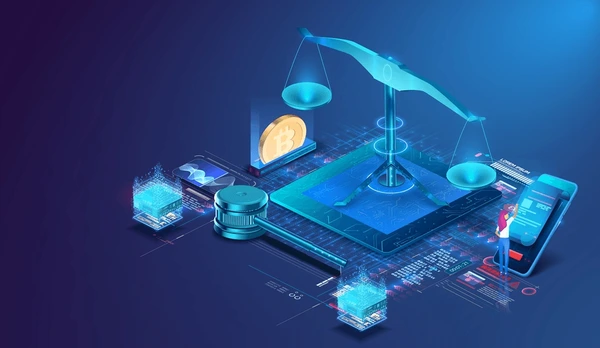Not too long ago, digital assets were a niche interest. A few people mined coins in their basements, and the rest of the world barely noticed.
Fast forward to now, and they’ve become part of everyday business like investments, online payments, and even company balance sheets.
With that shift, of course, comes something less exciting but absolutely unavoidable: taxes.
And here’s the tricky part. Every time money changes hands in the digital world, it leaves a trace. Governments are paying attention. The challenge is figuring out how to keep up without getting tangled in regulations.
One country that’s done better than most is Estonia. It’s small, yes, but it’s built a reputation as one of the most digital-first legal environments you’ll find anywhere.
Contents
Why Estonia Has Everyone’s Attention
If you’ve looked into starting a company in Europe, chances are you’ve heard of Estonia’s e-residency program.
It’s a clever idea: you can apply online, get a digital ID, and run a company without ever setting foot there. Banking, taxes, signing contracts – all handled digitally.
That matters for entrepreneurs working with blockchain or crypto. In a world where many governments still treat digital business with suspicion, Estonia has leaned into it.
They don’t see it as a loophole to close. They see it as part of the modern economy. For founders tired of red tape, that’s a breath of fresh air.
The Complicated World of Digital Asset Taxation
Of course, just because the system is efficient doesn’t mean it’s simple. Taxes never are. Digital assets raise all the same questions as traditional ones, but with added twists.
When does a taxable event actually happen? Is it when you trade? When you swap one token for another? Only when you cash out into fiat?
And then there’s valuation. If the price of an asset jumps 15% before lunch and drops by dinner, what number do you use?
Estonia tends to treat digital assets like property or income. That gives a framework, but the details still trip people up. Keeping records isn’t optional. Miss one line item, and you could find yourself explaining it during an audit.
Why Legal Help Is Worth It
This is where the specialists come in. A growing number of crypto tax lawyers work specifically with these issues.
They don’t just point to the law; they help you apply it in practice. How to structure transactions so you’re not blindsided later. What to document, and how to prepare if the tax office comes asking questions.
Think of it like this: you wouldn’t build a house without checking the foundation. Running a business without legal clarity is the same kind of gamble.
Finding the Right Fit in Estonia
Now, if you’re considering Estonia, you’ll quickly find there are plenty of firms offering legal services. The question is: who actually gets digital business?
Look for firms that combine tax and business law with real-world experience in this space. Bonus points if they understand both Estonian and EU regulations, because even if your company is registered in Tallinn, your clients and partners probably aren’t all local.
And don’t underestimate the value of continuity. A firm that can help with formation, tax planning, and ongoing compliance saves a lot of headaches.
Many lawyers in Estonia are highly skilled, but not all offer that kind of end-to-end support.
Looking Ahead
It’s worth noting that regulation isn’t standing still. If anything, it’s tightening. Around the world, governments are trying to bring digital transactions under clearer frameworks. Estonia is no exception.
That’s not necessarily a bad thing. Businesses that prepare early and take compliance seriously often end up in a stronger position than those that scramble later. Planning ahead isn’t just about avoiding penalties – it’s about building stability.
Wrapping It Up
Running a digital asset business is exciting, but it comes with a layer of responsibility that can’t be ignored.
Estonia gives entrepreneurs a head start with its digital-first infrastructure and clear processes. Still, success depends on understanding tax obligations and planning accordingly.
Legal clarity isn’t a box to tick. It’s a competitive edge. And in a space as fast-moving as digital assets, that edge can make all the difference.




